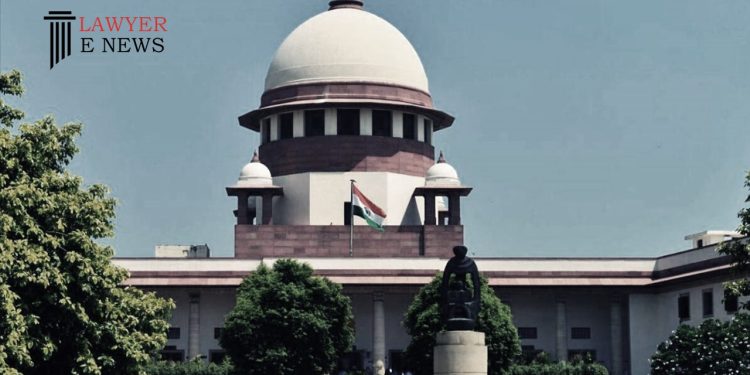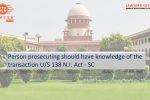Accused entitled to bail if arrest violated 41, 41A CrPC- Supreme Court

The Supreme Court held in case titled (Satender Kumar Antil vs Central Bureau Of Investigation) that any violation of Criminal Procedure Code Sections 41 and 41A at the time of arrest would entitle the accused to bail. Sections 41 and 41A are components of Article 21 of the Indian Constitution.
The court mentioned that Delhi Police, namely Standing Order No. 109 of 2020, stipulates a set of rules in the form of a system for police personnel to issue notices or orders.
The Court also gave the following additional directives:
a) In order to simplify the process of issuing bails, the Indian government may consider introducing a distinct statute in the form of a bail legislation.
b) The mandate of Sections 41 and 41A of the Code and the directives given by this Court in Arnesh Kumar must be followed by the investigative authorities and their officers (supra). The court is required to notify the higher authorities of any negligence on their part.
c)The courts must determine whether Sections 41 and 41A of the Code are being followed. Any failure to comply would allow the accused to be granted bail.
d) Taking note of the order of the High Court of Delhi dated 07.02.2018 in Writ Petition (C) No. 7608 of 2018 and the standing order issued by the Delhi Police i.e. Standing Order No. 109 of 2020, to comply with the mandate of Section 41A of the Code, all State Governments and the Union Territories are directed to facilitate standing orders for the procedure to be followed under Section 41 and 41A of the Code.
e) When evaluating an application made in accordance with Sections 88, 170, 204, and 209 of the Code, there is no requirement to insist on a bail application.
f)The directive outlined in this court’s Siddharth judgement must be strictly followed (in which it was held that investigating officer need not arrest each and every accused at the time of filing chargesheet).
g) The State and Central Governments must abide by whatever instructions this Court may make from time to time regarding the establishment of special courts. The High Court will need to conduct research on the need for the special courts in collaboration with the State Governments. It will be necessary to quickly fill the open positions for presiding officers of the special courts.
h) The High Courts are mandated to carry out the task of identifying undertrial inmates who are unable to adhere to the bail requirements. Following that, the release will be made possible by taking the necessary action in accordance with Section 440 of the Code.
I It is important to keep Section 440 of the Code in mind when demanding sureties.
j) As previously ordered by this Court in Bhim Singh (supra), an exercise will need to be carried out in a similar way to satisfy the requirements of Section 436A of the Code at both the district judiciary level and the High Court, followed by the relevant decisions.
j) Bail petitions should be resolved within two weeks unless the provisions require differently, with an intervening application being the exception. With the exception of any intervening applications, anticipatory bail requests should be resolved within a six-week window.
l) It is mandated that all State Governments, Union Territories, and High Courts provide affidavits and status reports within a four-month window.
Satender Kumar Antil
vs
Central Bureau Of Investigation






